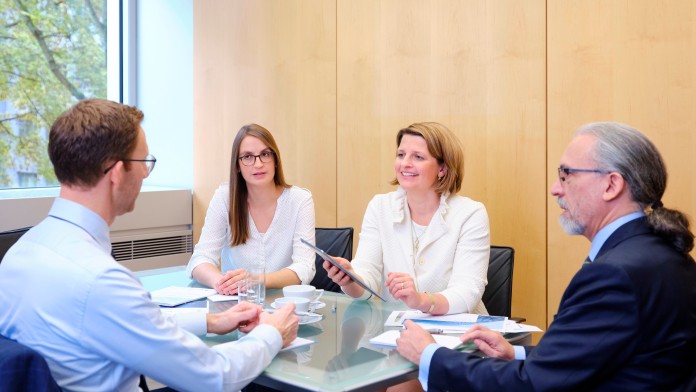Dr Friederike (Fritzi) Köhler-Geib has been KfW Chief Economist and head of the company's economics department since November 2019. She analyses trends relevant for KfW in the economy, society and on the financial markets and brings a new dynamic to the economic and financial policy debate. The focus of her work lies in the analyses of economic developments and growth trends in Germany. A particular focus is placed on small and medium-sized enterprises and the role of innovation and digitalisation in improving competitiveness, as well as issues related to the goal of a climate-neutral economy. Furthermore, Dr Fritzi Köhler-Geib also actively addresses economic policy connections between Germany, Europe and the world.

"All in all, the analysis of business location factors in Germany shows an urgent need for action to build on strengths and get to grips with weaknesses. It is relevant to note that Germany was the only G7 country in the period from 2005 to 2020 that managed to catch up with the USA in terms of its per capita income. Only with the shocks, starting with the COVID pandemic in 2020, did Germany fall behind at a high level. The good economic performance has long reduced the pressure to act on the structural challenges that were already present at the time, such as demographic change and the transformation tasks towards a digital and climate-neutral economy. In this respect, the current economic weakness provides an opportunity to tackle the structural challenges from a starting position that is still good in many areas. Strengths lie in innovative power, an internationally competitive logistics infrastructure and a well-trained labour force. Demographic change and the clearly negative trend in basic school qualifications threaten to turn this current strength into a weakness. Further weaknesses lie in comparatively low public investment and a high tax burden on investment returns for companies. Germany undoubtedly also has a cost disadvantage when it comes to energy supply, especially in relation to the USA and Canada. In the past, the German economy and society have shown time and again that the country can cope with change and adapt to new circumstances. All players from politics, business and society must now make their contribution to this."
Germany’s competitiveness – from ‘sick man of Europe’ to superstar and back: Where does the economy stand?
Previous comments from Dr Fritzi Köhler-Geib

Rebuilding the economy after COVID-19 and tackling the climate crisis must go hand in hand. For Germany to achieve its target for climate action, it needs to tap into overlooked areas of potential to reduce its CO₂ emissions. In particular, this process will be essential for the transport sector. And there is even more that can be done with innovative building solutions.
22.05.2024 | Sitzung des Mittelstandsrats, Berlin
03.06.2024 | Ostdeutsches Wirtschaftsforum 2024, Bad Sarrow
KfW Research, KfW Group, Palmengartenstrasse 5-9, 60325 Frankfurt, Germany,
Share page
To share the content of this page with your network, click on one of the icons below.
Note on data protection: When you share content, your personal data is transferred to the selected network.
Data protection
Alternatively, you can also copy the short link: kfw.de/s/enkBcl5a
Copy link Link copied